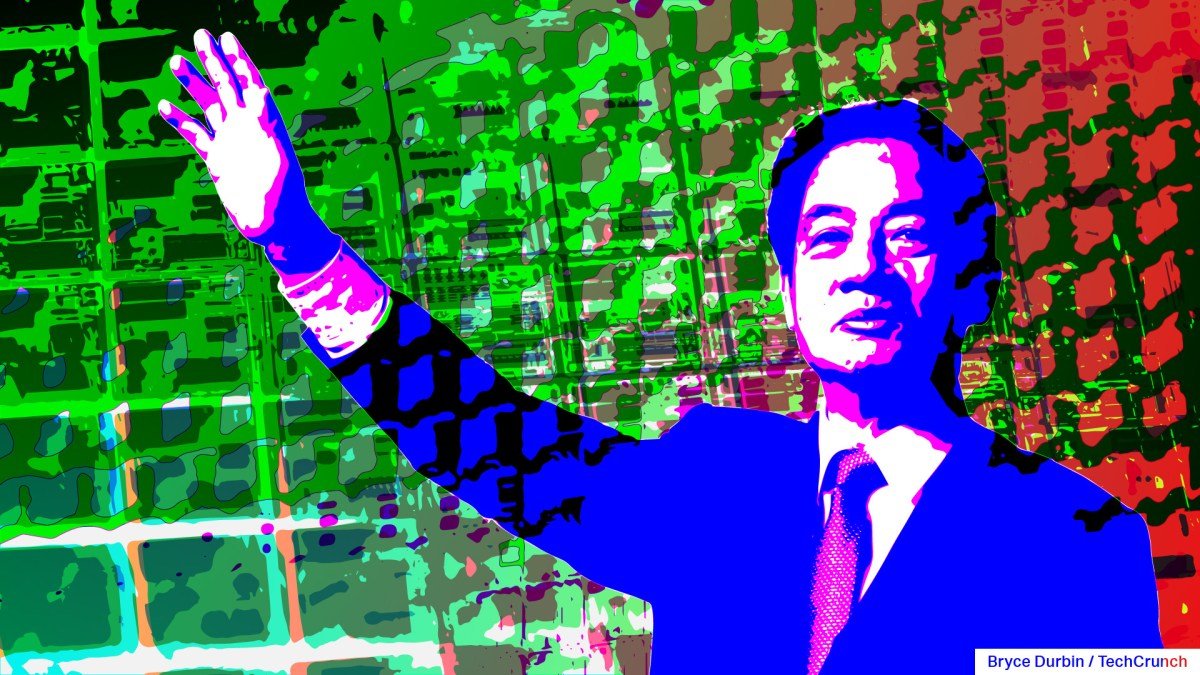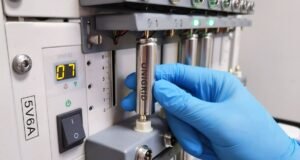Lai Ching-te, who emerged as the victor of Taiwan’s presidential election last Saturday, stands at a pivotal crossroad as he prepares to take office as the country’s leader in May.
The Democratic Progressive Party has retained its rule in Taiwan for the third consecutive term, and it is expected that Lai will follow in the footsteps of his predecessor, Tsai Ing-wen, in the country’s approach to supporting its leading economic driver and prized export: the semiconductor industry.
However, even though Lai has made several statements acknowledging the importance of Taiwan’s chip industry, he has yet to lay out any specific policies. As the global tech landscape increasingly becomes influenced by geopolitical forces, Lai may need to pivot and adapt his stance on the industry.
One of Lai’s campaign promises was to generate 20,000 jobs in startups within five years, but he has yet to provide detailed plans on how to achieve this goal. In his victory speech on Saturday, Lai fervently spoke about the significance of Taiwan’s chip sector, alluding to the fact that his government’s primary focus on technology will center around semiconductors. This choice aligns with the industry’s substantial contribution to Taiwan’s economy, despite the island nation’s small size and population of only 23 million. More crucially, the success of Taiwan’s economy is heavily dependent on the performance of its semiconductor industry.
Lai emphasized his commitment to “further boost the development of the semiconductor industry,” stating that it will have a positive impact on the global economy as well.
Thanks to Lai’s remark, chip stocks experienced a surge. In particular, he emphasized the crucial role of Taiwan Semiconductor Manufacturing Company (TSMC) in the world. Paul Triolo, associate partner and technology policy lead at Albright Stonebridge Group, praised Lai’s focus on this industry, stating,
“I have argued for some time that Taiwan and TSMC are global assets.”
When it comes to the semiconductor sector, Lai has demonstrated in the past that he is willing to do more than just making empty promises. During his tenure as the mayor of Tainan, a city in southern Taiwan, Lai played a pivotal role in the establishment of a TSMC plant in a science park.
So, what can we expect Lai to do for Taiwan’s semiconductor industry? The government has previously provided TSMC and other companies with tax subsidies and various other incentives, but it is now falling behind countries that offer more generous funding and tax benefits. Dylan Patel, chief analyst at SemiAnalysis, predicts that Lai will continue to provide subsidies and favorable treatment to chip companies under Taiwan’s environmental protection laws. At the same time, Taiwan is playing catch-up with other major players in the field, such as the European Union, Japan, South Korea, and China. Patel points out that the United States has allocated $52 billion to boost its chip industry, while China provides subsidies for chip manufacturers to acquire equipment and even apartment buildings for their employees.
Compared to these countries, Taiwan’s main advantage is its lower tax burden, but according to Patel, that’s about it. He explains, “There’s nothing like what the United States and China have implemented, and it’s like fighting with one hand tied behind your back” due to Taiwan’s comparatively smaller economy.
Another obstacle is the fact that despite the crucial role of the semiconductor industry in Taiwan’s economy, it employs only a small portion of its population. Lai will need to balance the demands of those who do not work in this sector by investing in other domestic issues, especially since he did not secure a strong mandate (winning only 40% of the vote in a three-way race against Hou Yu-ih of the Kuomintang and Ko Wen-je of the Taiwan People’s Party).
Patel notes, “Most citizens in Taiwan are not employed in the semiconductor industry, even though it is the lifeblood of their economy. Therefore, it is not a popular issue, especially among the disgruntled voters who gave the DPP their margin of victory. It will be extremely challenging to allocate significant resources to the semiconductor industry.”
Chris Miller, author of “Chip War: The Fight for the World’s Most Critical Technology,” also believes that the Taiwanese government will be unable to compete with other countries in terms of granting perks to the industry. He says, “It’s often difficult to compete in a subsidy race with the Chinese government, and it’s even harder for Taiwan due to its smaller economy.” However, Taiwan does have the advantage of lower costs, not only in terms of wages but also in the way its infrastructure and ecosystem have developed.
One of the crucial ways Lai’s administration can help the semiconductor industry is by fostering talent. Miller highlights the importance of education and creating pathways for university students to intern at chip companies, adding that these are areas where governments can focus their efforts.
On the geopolitical front, Lai will face complex challenges when it comes to managing the semiconductor industry.
“The complication with Taiwan’s semiconductor industry lies in the global supply chain and the geopolitical tensions between the United States, China, and Taiwan,” explains Triolo. “Understanding these interconnected issues is crucial. Here, Lai has a unique advantage due to his background and understanding of the industry, having held positions previously that supported its growth.”
In an interview with Bloomberg in August 2023, Lai stated that he welcomed TSMC’s expansion to other countries, in addition to its existing fabs in Taiwan, the United States, and China. His reasoning was that Taiwan’s chip industry has a “responsibility to contribute to the international community.” This approach can potentially alleviate concerns about the global tech industry’s reliance on TSMC’s Taiwan facilities.
The concentration of chip manufacturing in Taiwan has become a contentious issue, both inside and outside the country. Before construction commenced on TSMC’s Arizona fab, there was controversy as some Taiwanese viewed it as an attempt to move the semiconductor industry away from the island.
As the completion of the Arizona fab draws closer, Triolo anticipates that TSMC, and by extension, Lai and the Taiwan government, could face pressure from the U.S. government to push for the production of more advanced nodes at the facility. He explains, “TSMC is already working on developing processes that use two-nanometer chips and smaller, so there might be increased political pressure for the company to establish facilities for advanced nodes. This will undoubtedly be challenging.” Triolo also points out that TSMC’s Arizona fab has been beset with issues, including cultural differences, difficulty finding qualified local contractors, and significant and unexpected cost overruns.
He states, “The more valid criticism is whether TSMC’s focus on its Arizona facility will detract from its operations in Taiwan. Lai will have to weigh the pros and cons of offshoring more of TSMC’s facilities and how much the government is willing to permit.”
Supporters of establishing TSMC fabs in other countries often highlight the risks of heavy reliance on Taiwan for most of the world’s chip production, especially given its vulnerability to natural disasters like earthquakes and potential attacks from China.
“There may be some sensationalism surrounding this issue, but the underlying concern is valid,” explains Miller. “Several of the world’s biggest tech companies, including Apple, rely heavily on TSMC. If there were to be a catastrophic earthquake in Taiwan, it would significantly impact the global tech supply chain, which is why it makes sense to have a more diversified production footprint.”
In addition to these challenges, Lai’s administration will also have to navigate the ongoing decoupling of China and the United States’ technology industries, partly brought about by the U.S.’s sanctions against Chinese chip companies. The Taiwanese government has taken measures to reduce the risk of information leaks to China regarding sensitive technologies, including semiconductors, by enacting guidance from its National Security Council.
China’s significant investments in its chip industry over the past decade have resulted in its burgeoning strength in this sector. Miller notes that this poses a challenge for Taiwanese firms, as China shows no intention of purchasing their products in areas where it can produce comparable technology. He stresses the need for Taiwanese firms to remain ahead of their Chinese counterparts, considering that the country poses a capable economic competitor in both chip manufacturing and design.
On the other hand, Patel believes that China is still relatively restricted when it comes to advanced chip production, and “Taiwan’s monopoly on the market is likely to prevail.”
Despite the obstacles faced by Taiwan’s semiconductor industry, Triolo acknowledges that its global recognition has significantly increased over the past eight years since Tsai took office. This has been exacerbated by the semiconductor shortage experienced during the pandemic, which has drawn attention to Taiwan’s industry concentration. The industry’s strategic importance was underscored by Lai’s mention of it in his victory speech, highlighting its geopolitical significance.
“This is not just a problem within Taiwan or Asia,” explains Triolo. “It’s a global issue, and I think it was crucial for Lai to recognize this in his speech.”








